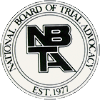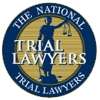Invokana Drug Claims
Over 30 million people, or roughly 9% of the U.S. population, had diabetes in 2015 according to the CDC. Type 2 diabetes accounts for 90-95% of all diabetes cases, and treatment for the disease ranks among the highest prescription drug therapies in the U.S.
The type 2 diabetes drug Invokana (canagliflozin) manufactured by Janssen Pharmaceuticals, Inc. was approved for sale in the U.S. in March of 2013 by the FDA. At the time of approval, the drug was marketed as a treatment for type 2 diabetes with the added benefits of reductions in body weight and macrovascular events (i.e. reduced numbers of heart attacks and strokes). By 2016, approximately 4.5 million Invokana prescriptions were filled by U.S. patients generating sales of $2.33 billion.
Invokana was the first of a new class of prescription drugs known as sodium-glucose cotransporter-2 (SGLT2) inhibitors. Used with diet and exercise to help lower blood sugar in adults with type 2 diabetes, is a once-daily pill that lowers blood sugar by preventing the kidneys from reabsorbing glucose, causing some of the circulating blood glucose to be excreted in the urine rather than returned to blood circulation.
Despite the fact this SGLT2 inhibiting medication has only been on the market since 2013, there have been an alarming number of safety concerns about Invokana that call into question whether the drug’s benefits outweigh its risks.
There are now numerous Adverse Event Reports associated with Invokana, Invokamet, and Invokamet XR. The most serious complications which may be linked to these medications are:
- Diabetic Ketoacidosis (DKA)
- Heart Attacks / Myocardial Infarctions (MI)
- Kidney Damage / Renal Failure
- Lower Limb Amputations
ISMP EXPRESSES CONCERN OVER INVOKANA SAFETY IN 2015
In its QuarterWatch report released on May 6, 2015, the Institute for Safe Medication Practices (ISMP) reported Invokana had been linked with 457 reports of serious adverse events in the first year after approval. Authors indicated, “This was a higher total than for 92% of the drugs we regularly monitor.”
The authors concluded: “The central unanswered question about canagliflozen…is whether the drug does more good than harm in long-term treatment. While Janssen noted that the drug had now been tested in more than 10,000 patients, the data were still of insufficient duration to establish whether the drug had measurable clinical benefit on the complications of Type 2 diabetes. The current data are also insufficient to address unanswered questions raised in the FDA reviews about whether long-term use might result in a steady decline in kidney function, increased risk of bone fractures, or more cardiovascular events. By contrast, we observe clear evidence of harm to some patients in terms of hypersensitivity reactions and an array of renal adverse effects.”
FDA ISSUES SAFETY WARNING ON MAY 15, 2015
On May 15, 2015, the U.S. Food and Drug Administration (FDA) issued a Drug Safety Communication warning that the type 2 diabetes medicines canagliflozin, dapagliflozin, and empagliflozin may lead to ketoacidosis, a serious condition where the body produces high levels of blood acids called ketones that may require hospitalization. Between March 2013-June 2014 the FDA Adverse Event Reporting System database identified 20 cases of acidosis reported as diabetic ketoacidosis, ketoacidosis, or ketosis in patients treated with SGLT2 inhibitors. All the affected patients required emergency room visits or hospitalization to treat the condition.
Since June 2014, the FDA said it continued to receive additional Adverse Event Reports of diabetic ketoacidosis and ketoacidosis in patients treated with SGLT2 inhibitors. The FDA warned patients to pay close attention for any signs of ketoacidosis and to seek medical attention immediately if symptoms such as difficulty breathing, nausea, vomiting, abdominal pain, confusion, and unusual fatigue or sleepiness occur.
See the Drug Safety Communication for additional information.
FDA ORDERS INCREASED SAFETY WARNING FOR KIDNEY INJURY IN 2016
The FDA warned on June 14, 2016 that from the time Invokana was released until October 2015 the Agency had received reports of 101 confirmable cases of acute kidney injury, some requiring hospitalization and dialysis, with canagliflozin or dapagliflozin use. In approximately half of the cases, the events of acute kidney injury occurred within one month of starting the drug, and most patients improved after stopping it. The Agency said the actual number of cases was probably higher than what had been reported to it.
Patients were warned to seek medical attention immediately if signs and symptoms of acute kidney injury such as decreased urine or swelling in the legs or feet occur.
See the Drug Safety Communication for additional information.
FDA ORDERS BLACK BOX WARNING IN 2017 FOR AMPUTATION RISK
Based on data from two large clinical trials, the FDA concluded that the type 2 diabetes medicine canagliflozin (Invokana, Invokamet, Invokamet XR) carries a doubled increased risk of leg and foot amputations. On May 16, 2017, the FDA announced it would require new warnings, including the most prominent Black Box Warning, to be added to the canagliflozin drug labels to describe this risk.
The two clinical trials – the CANVAS (Canagliflozin Cardiovascular Assessment Study) and CANVAS-R (A Study of the Effects of Canagliflozin on Renal Endpoints in Adult Participants With Type 2 Diabetes Mellitus) – showed that leg and foot amputations occurred about twice as often in patients treated with canagliflozin compared to patients treated with placebo, which is an inactive treatment. Amputations of the toe and middle of the foot were the most common; however, amputations involving the leg, below and above the knee, also occurred. Some patients had more than one amputation, some involving both limbs.
See the FDA Drug Safety Communication for additional information, including a data summary.
TAMPA INVOKANA ATTORNEYS
Alley, Clark & Greiwe continues to litigate a number of pharmaceutical drugs cases. Each personal injury attorney at our law firm has extensive experience representing clients seriously injured due to defective medical devices and drug products. If you or someone you love has used an SGLT2 diabetes drug and suffered a lower limb amputation, heart attack, kidney damage, or ketoacidosis please contact an experienced Unsafe Drug Product attorney at Alley, Clark & Greiwe for a free consultation regarding your legal rights.
HELPFUL CONSUMER INFORMATION ON INVOKANA
- Click here to read the FDA Safety Communication from May 2017
- Click here to read the FDA Safety Communication from May of 2015
- Click here to read the FDA Safety Communication from June 2016
- Click here to read more facts about Invokana from the FDA
- Click here to read the ISMP report released in May 2015




















